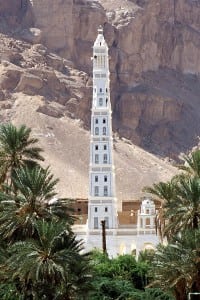A major trend in today’s tourism market is the increased popularity and potential for Islamic Tourism. According to Research and Markets, which calls itself the world’s largest market research store, the Islamic tourism market’s extraordinary potential and speedy growth means it is expected to comprise nearly 30 percent of the global tourism market by 2018.
Countries such as Malaysia—with a solid reputation for stability—are reaping the benefits. A key reason behind the growth of the market is the world’s increasing Muslim population. According to THE report, the world’s Muslim population is expected to grow at twice the rate of its non-Muslim population. Hence, the demand in tourism packages that accommodate Muslims’ religious beliefs is likely to increase.
Muslims interested in Islamic tourism are interested in destinations that comply with Shariah law and accommodate their special needs. This includes halal food—food that meets the guidelines of Islamic Shariah. Since all Muslims pray towards Makkah, it also requires accommodation where tourists can find clearly marked signs or instructions indicating which direction to pray in. Other needs include prayer rugs and special bathrooms so that Muslims can conduct the required ritual ablutions before prayer.

Those booking Islamic tourism packages often seek historical or cultural sites that would also be of interest to non-Muslim tourists, in addition to sites with Islamic significance, said Abdu Lotf Othman, the deputy manager of the Public Relations Department at the Ministry of Tourism. Othman believes Yemen is well-placed to earn a spot amongst countries attracting tourists that want Shariah compliant tourism. But a key factor surrounding Malaysia’s success is stability. Can Yemen really mimic the Malaysia model? The Yemen Times sat down with Othman to find out.
What would Yemen need to do to help expand Islamic tourism within the country?
In Yemen, we are well-prepared for this sort of tourism. We would need to make some changes, such as making sure hotels have signs clearly indicating the availability of halal food, and there would need to be some renovations of bathrooms in hotels and other facilities, so they are more in line with what Muslim tourists are used to experiencing when they travel, so they can prepare for their prayers more easily. But we are already ahead of the game, in many regards.
Because Yemen is a Muslim country and the food is already halal?
Yes, so we have a great head start. This will help us. The direction of the Kabah needs to be more clearly marked in hotel rooms, and the Ethan [the call to prayer] should be heard from every hotel room. This will provide the right atmosphere.
Is Islamic tourism about visiting a country’s Islamic heritage, or is it regular tourism, where Muslims are specially accommodated?
It is both.
Why Yemen?
There are a large number of cities, towns and villages in Yemen that are home to important historical and Islamic sites. We have a number of historical mosques and old centers of learning that would make attractive tourist destinations.
Where specifically would you recommend Islamic tourists to go?
They can go to Sana’a, Taiz, Mahweet, Shaiban Cocoban, Marib, Hodeida, Hadramout, Hajja. These places are all attractive and boast many interesting sites. They can go to Bait Al-Fakih, Zabid, and Tarim. Tarim was an old center of learning, and an Islamic university. People can go normal site-seeing, or visit Islamic sites, whichever they prefer.
But tourists cannot travel to many of these places, due to the security situation…
True, the security situation is not good, but traveling is not prohibited, except to places like Marib of Hadramout, which the government won’t issue travel permits to, due to fighitng between security forces and Al-Qaeda in the Arabian Peninsula (AQAP).
Our plans for Islamic tourism are long term, but we can begin promoting them now. When Yemen is more stable, God willing, tourists will be able to visit these areas.
So Islamic tourism is not yet a possibility for Yemen, because of the security situation?
Well, we can still promote it.
If you’re at a convention and someone likes what you’ve presented and wants to visit, you would tell them not now, perhaps in the future?
We would promote it. If they want to come they can come.
If you could recommend just one place to visit in all of Yemen, what would it be?
Bait Al-Fakih or Tarim.


